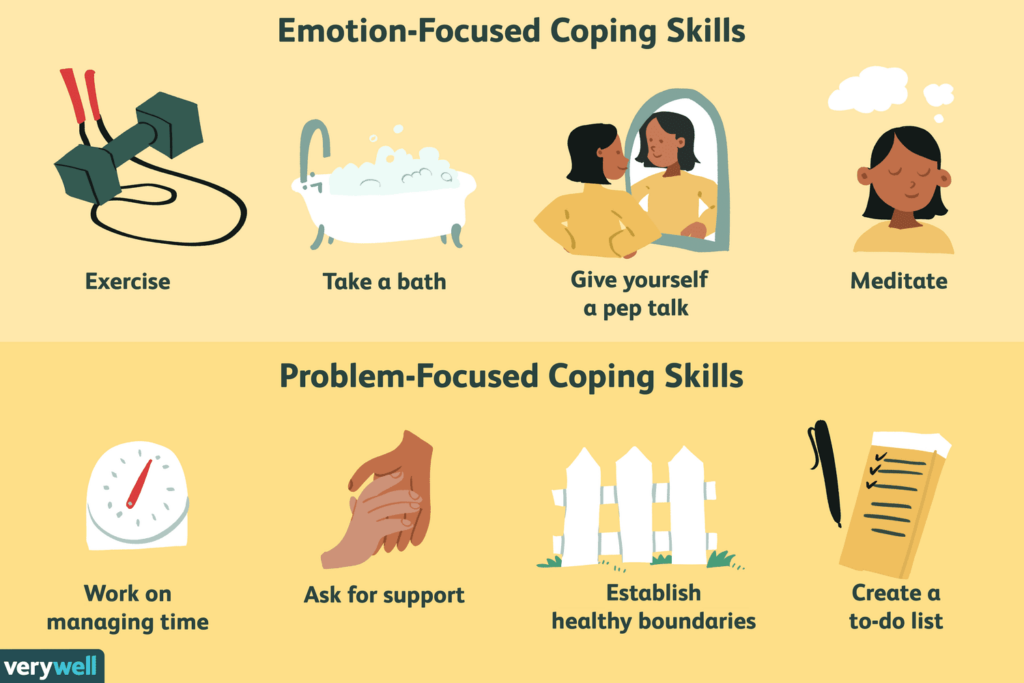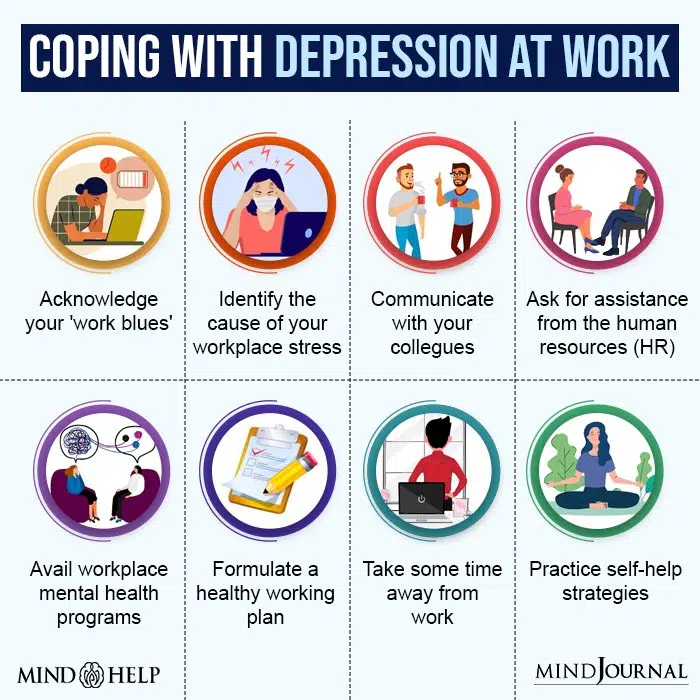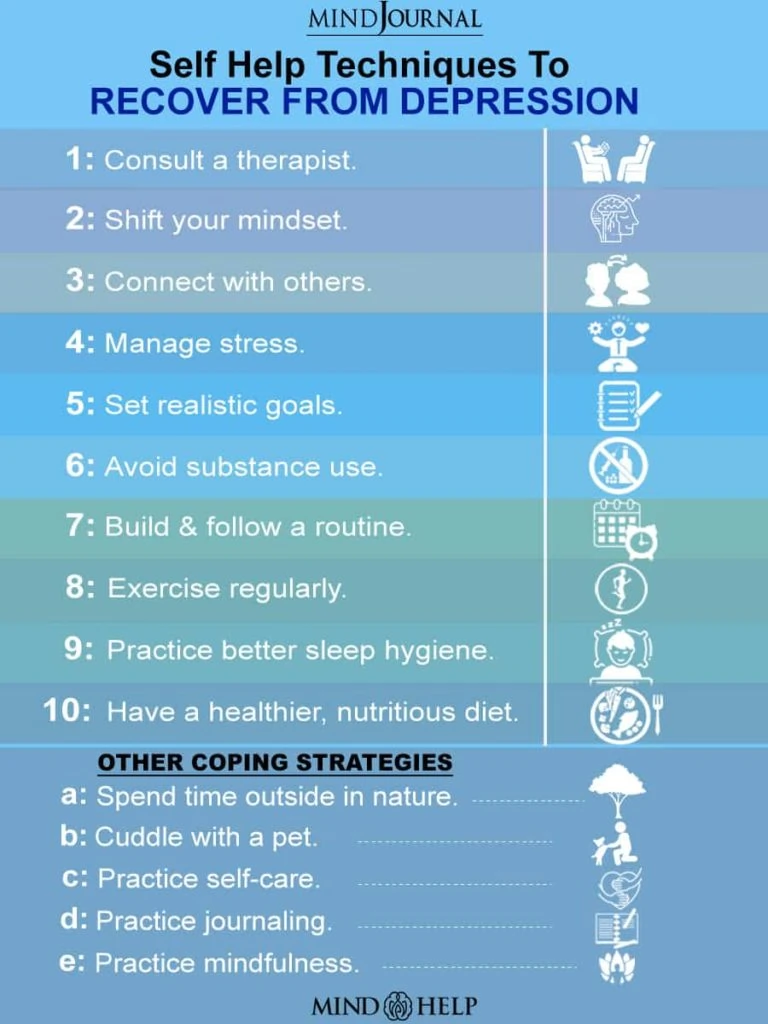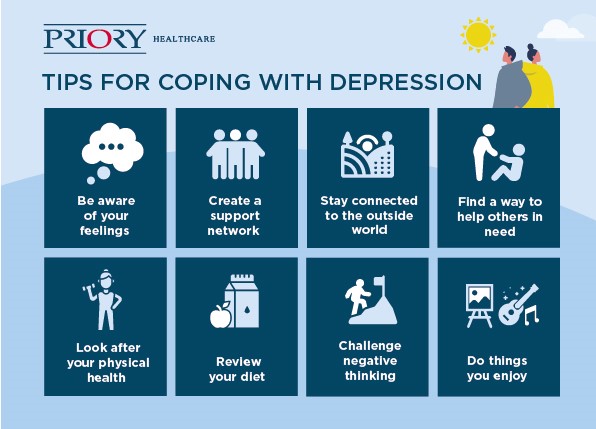Are you looking for effective strategies to cope with depression and improve your emotional well-being? In this article, we will explore a range of practical techniques that can help you navigate the challenges of depression and promote a healthier mindset. Discover tips for self-care, building a support network, and adopting positive coping mechanisms that can empower you on your journey towards emotional well-being. Let’s delve into this essential guide for coping with depression and taking proactive steps towards a happier, healthier you.

Understanding Depression
Defining Depression
Depression is a complex mental health condition that affects millions of people worldwide. It is more than just feeling sad or blue; it is a persistent feeling of emptiness, hopelessness, and a loss of interest in activities that were once enjoyable. Depression can make even the simplest tasks seem overwhelming and can have a profound impact on every aspect of your life.
Causes of Depression
While the exact cause of depression is still not fully understood, it is believed to be the result of a combination of genetic, biological, environmental, and psychological factors. Some individuals may have a genetic predisposition to depression, while others may experience depression as a result of a traumatic or stressful life event. Imbalances in brain chemicals, such as serotonin and dopamine, can also contribute to the development of depression.
Types of Depression
Depression can manifest in various forms, each with its own set of symptoms and characteristics. Some common types of depression include:
-
Major Depressive Disorder (MDD): This is the most common form of depression, characterized by persistent feelings of sadness or a loss of interest in daily activities that lasts for at least two weeks.
-
Persistent Depressive Disorder (PDD): PDD, also known as dysthymia, is a chronic form of depression that lasts for at least two years. It is characterized by a milder, but more persistent, form of depressive symptoms.
-
Bipolar Disorder: This condition involves alternating periods of depression and mania (elevated mood and excessive energy). People with bipolar disorder experience extreme mood swings that can impact their daily functioning.
-
Seasonal Affective Disorder (SAD): SAD is a type of depression that follows a seasonal pattern, typically occurring during the winter months when there is less sunlight. It is believed to be related to disruptions in the body’s circadian rhythm.
Seeking Professional Help
Recognizing the Need for Help
Recognizing that you need help and reaching out for support is a crucial step in managing depression. It is important to remember that seeking help is a sign of strength, not weakness. If you experience persistent feelings of sadness or notice changes in your behavior or mood that interfere with your daily life, it may be time to consider professional assistance.
Finding a Mental Health Professional
When seeking professional help for depression, it is essential to find a mental health professional who specializes in treating depression or mood disorders. Consider reaching out to a licensed therapist, psychologist, psychiatrist, or counselor. These professionals can provide you with the necessary guidance and support to help you navigate through your depression.
Therapeutic Approaches for Depression
Therapeutic approaches for depression can vary depending on the individual and the severity of their symptoms. Some common therapy options include:
-
Cognitive Behavioral Therapy (CBT): CBT helps individuals identify and change negative thought patterns and behaviors. It focuses on developing healthier coping strategies and improving problem-solving skills.
-
Psychodynamic Therapy: This therapy explores the unconscious thoughts and emotions that may contribute to depression. By gaining insight into these underlying issues, individuals can develop a better understanding of themselves and their emotions.
-
Medication: In some cases, medication may be prescribed to help manage depression. Antidepressant medication, such as selective serotonin reuptake inhibitors (SSRIs), can help regulate brain chemicals and improve mood.

Building a Support System
Family and Friends
Building a strong support system consisting of family and friends is essential when dealing with depression. Reach out to loved ones and let them know how you’re feeling. Sharing your emotions and experiences with trusted individuals can provide comfort, understanding, and a sense of belonging. Remember, you don’t have to face depression alone.
Support Groups and Community
Support groups are another valuable resource for individuals facing depression. These groups offer a safe space to share experiences, learn coping strategies from others who have gone through similar challenges, and provide emotional support. Local community centers, mental health organizations, and online platforms often host support groups that cater to various needs and demographics.
Online Support Networks
In today’s digital age, online support networks can offer valuable support and connections for individuals dealing with depression. Online forums, chat groups, and social media communities provide platforms where you can connect with others who understand what you’re going through. It is important to exercise caution and choose reliable platforms that promote healthy discussions and offer guidance from professionals.
Developing Healthy Coping Mechanisms
Self-Care Practices
Engaging in regular self-care practices is crucial for managing depression. Self-care involves activities that promote physical, emotional, and mental well-being. It can include anything from taking a relaxing bath, reading a book, or practicing mindfulness. Prioritize self-care activities that bring you joy and help you recharge.
Exercise and Physical Activity
Regular exercise and physical activity have been shown to have a positive impact on mental health, including depression. Engaging in activities such as walking, jogging, yoga, or dancing releases endorphins, which are natural mood-boosting chemicals in the brain. Aim for at least 30 minutes of moderate-intensity exercise most days of the week.
Mindfulness and Meditation
Practicing mindfulness and meditation can help reduce stress, increase self-awareness, and promote emotional well-being. These practices involve focusing on the present moment, observing and accepting thoughts and emotions without judgment. Consider incorporating mindfulness exercises or guided meditation into your daily routine to help manage depressive symptoms.

Managing Stress and Anxiety
Identifying Stressors
Identifying the sources of stress in your life can help you develop effective coping strategies. Keep a stress journal to track situations or triggers that contribute to your stress levels. This awareness will allow you to prioritize and address these stressors more effectively.
Stress Management Techniques
There are various techniques that can help manage and reduce stress levels. Deep breathing exercises, progressive muscle relaxation, and engaging in hobbies or activities that bring you joy are just a few examples. Experiment with different strategies to find what works best for you in stress management.
Anxiety Reduction Strategies
Depression and anxiety often go hand in hand. Incorporating anxiety reduction strategies into your daily routine can help alleviate symptoms of both conditions. These strategies may include practicing relaxation techniques, challenging negative thoughts, and engaging in regular exercise and self-care activities.
Establishing a Balanced Lifestyle
Maintaining a Regular Routine
Establishing and maintaining a regular routine can provide structure and stability, which is crucial in managing depression. Set consistent wake-up and sleep times and plan daily activities to ensure a sense of purpose and accomplishment. Balance work, leisure, and self-care activities throughout your day.
Setting Realistic Goals
Setting realistic goals is essential when managing depression. Break larger tasks into smaller, more manageable steps, and celebrate even the smallest accomplishments. By setting realistic expectations, you can avoid feelings of overwhelm and maintain motivation.
Healthy Sleep Habits
Quality sleep is vital for emotional well-being and overall health. Establish a consistent sleep routine by going to bed and waking up at the same time each day. Create a relaxing pre-sleep routine, such as reading a book or taking a warm bath, to signal your body that it’s time to wind down. Avoid excessive caffeine intake and limit screen time before bed to promote better sleep.

Promoting Positive Thinking
Cognitive Behavioral Therapy (CBT)
Cognitive Behavioral Therapy (CBT) is an evidence-based therapeutic approach that focuses on identifying and challenging negative thoughts and beliefs. By replacing negative thinking patterns with more positive and realistic ones, CBT helps reframe your perspective and promote positive thinking.
Affirmations and Self-Talk
Affirmations and positive self-talk can be powerful tools in promoting positive thinking. Repeat positive affirmations daily, such as “I am capable,” “I am deserving of happiness,” or “I am resilient.” Practice replacing self-critical thoughts with kind and compassionate ones.
Gratitude Practice
Practicing gratitude can shift your focus from negative thoughts to positive aspects of your life. Keep a gratitude journal and write down three things you are grateful for each day. This practice can help cultivate a more optimistic outlook and enhance your overall well-being.
Engaging in Meaningful Activities
Pursuing Hobbies and Interests
Engaging in hobbies and activities that bring you joy and fulfillment can play a significant role in managing depression. Explore new interests or revisit old ones that you may have lost interest in. Engaging in activities you enjoy can provide a sense of purpose, boost self-esteem, and distract from depressive thoughts.
Volunteering and Helping Others
Volunteering and helping others can have a positive impact on both your mental health and the community. Giving back and engaging in acts of kindness can provide a sense of purpose, improve self-worth, and create connections with others. Look for local volunteer opportunities or reach out to charitable organizations to find ways to contribute.
Creative Outlets
Engaging in creative outlets, such as art, music, or writing, can be therapeutic and provide an emotional outlet for expressing yourself. These activities allow you to channel your emotions into something tangible and provide a sense of accomplishment and self-expression.

Avoiding Negative Triggers
Identifying Negative Influences
Identifying negative influences in your life is crucial for managing depression. These influences can include toxic relationships, unhealthy environments, or negative media consumption. Take inventory of the people, places, or activities that negatively impact your well-being and make an effort to minimize exposure to these triggers.
Limiting Social Media
While social media can be a valuable tool for connection, excessive exposure can contribute to feelings of inadequacy and comparison, negatively impacting your mental health. Create boundaries by limiting your time on social media platforms and curating your feed to follow accounts that promote positivity and well-being.
Avoiding Substance Abuse
Substance abuse and depression often go hand in hand. While substances may provide temporary relief or escape, they ultimately exacerbate depressive symptoms and can lead to further complications. Seek healthier coping mechanisms and reach out for professional help if you find yourself turning to substances to cope with depression.
Maintaining Healthy Habits
Balanced Diet and Nutrition
Maintaining a balanced diet and nutrition plays a crucial role in managing depression. Focus on consuming nutrient-dense foods that support brain health, such as fruits, vegetables, whole grains, and lean proteins. Limit processed foods, sugary snacks, and excessive caffeine intake as they can negatively impact your mood.
Limiting Alcohol and Caffeine
Although alcohol and caffeine may provide temporary relief or relaxation, they can ultimately worsen depressive symptoms. Both substances can disrupt sleep patterns, affect mood stability, and hinder the effectiveness of antidepressant medication. Limit your alcohol and caffeine consumption to promote better mental well-being.
Avoiding Isolation
Isolation can intensify depressive feelings and make it harder to seek help. Make an effort to maintain social connections, even if it feels challenging. Reach out to loved ones, join community groups, or consider seeking support from a therapist or support group. Engaging in social activities can provide a sense of belonging and help combat feelings of loneliness.
In conclusion, understanding depression and implementing strategies to manage it is crucial for improving emotional well-being. By seeking professional help, building a support system, developing healthy coping mechanisms, managing stress and anxiety, establishing a balanced lifestyle, promoting positive thinking, engaging in meaningful activities, avoiding negative triggers, and maintaining healthy habits, you can take control of your journey towards recovery and lead a fulfilling life. Remember, you are not alone, and with the right support and strategies, you can overcome depression.